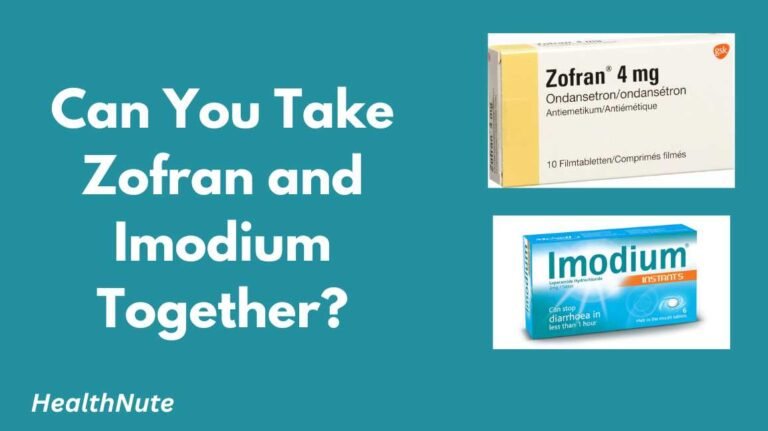Can I Take Bergamot with Atorvastatin?

Are you someone who keeps an eye on your health, especially when it comes to managing cholesterol levels? If you’re a user of atorvastatin—a widely prescribed statin for lowering cholesterol—you may have heard about bergamot and its potential benefits.
But can you take bergamot with atorvastatin safely? In today’s article, we’ll look at how bergamot and atorvastatin work together, what each one does, any possible interactions, and tips for safe use. By the end, you’ll know if adding bergamot to your routine is a good choice for you.
Understanding Bergamot
Bergamot is a citrus fruit native to southern Italy, known scientifically as Citrus bergamia. This fragrant fruit is primarily utilized for its essential oil, extracted from its peel, which is widely used in perfumes and aromatherapy.
Beyond its aromatic properties, bergamot has gained attention for its potential health benefits, particularly in managing cholesterol levels and improving cardiovascular health. Rich in flavonoids, bergamot may help in reducing LDL cholesterol and increasing HDL cholesterol, making it a popular natural supplement among those seeking alternative ways to support heart health.
Additionally, bergamot is believed to have anti-inflammatory and antioxidant properties, contributing to overall well-being.
Health Benefits and Uses of Bergamot
Bergamot has been used for various health purposes, and research continues to uncover its potential benefits. Here are some of the common uses of bergamot:
- Cholesterol Management: Clinical trials have demonstrated that bergamot can help lower LDL cholesterol levels by 7.6% to 40.8% while increasing HDL cholesterol, potentially contributing to improved heart health.
- Antioxidant Properties: The flavonoids found in bergamot possess antioxidant effects, helping to combat oxidative stress and protect cells from damage.
- Anti-Inflammatory Effects: Bergamot’s anti-inflammatory properties may aid in reducing inflammation in the body, potentially benefiting those with chronic inflammatory conditions.
- Mood Enhancement: The aroma of bergamot essential oil is often used in aromatherapy to alleviate stress and anxiety, promoting a sense of calm and mental clarity.
- Digestive Health: Some studies suggest that bergamot may support digestive health by enhancing gut function and alleviating gastrointestinal discomfort. [1]
- Blood Sugar Regulation: Preliminary research indicates that bergamot may assist in managing blood sugar levels, which can be beneficial for individuals with insulin resistance or type 2 diabetes.
What is Atorvastatin?
Atorvastatin is a prescription medication belonging to the class of drugs known as statins, which are primarily used to lower cholesterol levels in the blood. It works by stopping an enzyme in the liver called HMG-CoA reductase, responsible for the production of cholesterol.
By reducing the overall cholesterol level, atorvastatin helps decrease the risk of heart disease, heart attacks, and strokes in individuals with high cholesterol or those at risk for cardiovascular events.
Atorvastatin not only lowers low-density lipoprotein (LDL) cholesterol, often referred to as “bad” cholesterol, but can also help raise high-density lipoprotein (HDL) cholesterol, known as “good” cholesterol.
Common Uses of Atorvastatin
Atorvastatin is prescribed for several health conditions, including:
- Hyperlipidaemia: It is mainly used to treat high cholesterol levels, aiding in the reduction of LDL cholesterol and total cholesterol.
- Cardiovascular Disease Prevention: Atorvastatin is often prescribed to patients with existing heart disease or those at high risk, to help prevent further complications like heart attacks or strokes.
- Familial Hypercholesterolaemia: For those with genetic predispositions to high cholesterol, atorvastatin can be critical in managing cholesterol levels effectively.
- Post-Myocardial Infarction: After a heart attack, atorvastatin may be recommended to lower cholesterol and reduce the risk of future cardiac events.
Potential Side Effects
While atorvastatin is effective for many, it may come with side effects that patients should be aware of:
- Muscle Pain or Weakness: Some users may experience myopathy or muscle-related symptoms, which can range from mild discomfort to severe cases.
- Liver Function Changes: It’s a good idea to regularly check liver enzyme levels since atorvastatin may impact liver function in some people.
- Digestive Issues: Patients may experience gastrointestinal symptoms, including nausea, diarrhea, or constipation.
- Increased Blood Sugar Levels: Statins, including atorvastatin, can lead to mild elevations in blood glucose, which is particularly relevant for diabetic patients.
Can You Take Bergamot with Atorvastatin?
Both bergamot and atorvastatin can help manage cholesterol levels, but it is recommended to consult your doctor before taking them together.
Current research suggests that bergamot may complement the cholesterol-lowering effects of atorvastatin, potentially leading to enhanced cardiovascular benefits. However, bergamot can also influence liver enzymes, as both atorvastatin and bergamot are metabolized by the liver.
This interaction might impact how well atorvastatin works or raise the chances of side effects. That’s why it’s super important to keep in touch with your healthcare provider when you start taking bergamot alongside atorvastatin, especially when it comes to checking your liver function and cholesterol levels.
Potential Benefits of Combining Bergamot and Atorvastatin
While further research is needed, some possible benefits of taking bergamot with atorvastatin may include:
- Enhanced Cholesterol Reduction: The complementary actions of bergamot and atorvastatin may lead to enhanced LDL cholesterol reduction, resulting in improved lipid profiles.
- Holistic Heart Health Support: By addressing cholesterol levels and providing additional antioxidant and anti-inflammatory benefits, this combination may promote overall heart health.
- Potential for Fewer Side Effects: Some studies suggest that the use of bergamot could potentially mitigate side effects associated with atorvastatin, especially muscle-related symptoms.
- Improved Metabolic Function: The combined use may support better metabolic health by contributing to healthy blood sugar levels and aiding in weight management.
- Increased Compliance: Natural supplements like bergamot may improve adherence in some patients by providing additional support for heart health, and encouraging consistent medication usage.
Recommendations
If you’re considering adding bergamot to your routine while on atorvastatin, follow these guidelines:
- Consult Your Doctor: Always discuss with your healthcare provider before starting bergamot to ensure it’s safe for your situation.
- Monitor Liver Function: Regularly check liver enzyme levels, as both substances are metabolized by the liver.
- Track Cholesterol Levels: Keep an eye on cholesterol profiles to assess the combined effects effectively.
- Start with Low Dosage: Start with a lower dosage of bergamot to gauge tolerance and effects.
- Be Aware of Side Effects: Watch for any unusual symptoms or side effects and report them to your healthcare provider immediately.
Conclusion
In conclusion, the combination of atorvastatin and bergamot presents a promising approach to managing cholesterol levels and supporting cardiovascular health. Both have individual benefits, but consulting with a provider is essential to ensure safe use and monitor any potential interactions or side effects. By taking informed steps and following professional advice, patients can enhance their heart health outcomes and overall well-being.
FAQ
Can I take atorvastatin if I have liver problems?
If you have a history of liver disease or elevated liver enzymes, it is crucial to speak with your healthcare provider before starting atorvastatin. Regular monitoring of liver function is recommended for patients on this medication.
What dietary changes should I make while taking atorvastatin?
Patients are generally advised to adopt a heart-healthy diet rich in fruits, vegetables, whole grains, and lean proteins while limiting saturated fats and sugars. This dietary approach complements the cholesterol-lowering effects of atorvastatin.
Can I take bergamot instead of statins?
No, bergamot should not be taken as a substitute for statins like atorvastatin. While bergamot can support cholesterol management, it does not provide the same level of efficacy as statins in lowering LDL cholesterol and reducing cardiovascular risk. It is best used as a complementary approach alongside prescribed medications, not as a replacement.
Can you take bergamot with Crestor?
Yes, bergamot may be taken with Crestor (rosuvastatin), but it’s important to consult your healthcare provider first. Both substances can affect cholesterol levels, and combining them might enhance their lipid-lowering effects. However, potential interactions should be monitored, particularly concerning liver function, since both are metabolized in the liver.
How to use bergamot essential oil for cholesterol?
Bergamot essential oil can help manage cholesterol levels. You can use it by adding a few drops to a diffuser to breathe in, which might help reduce stress and support heart health. You can also mix bergamot oil with a carrier oil and apply it to pulse points.






